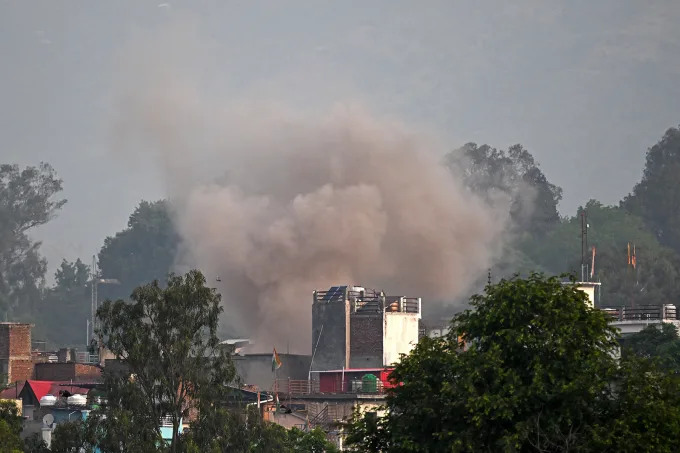This week’s intense clashes between India and Pakistan represent the most serious surge in hostilities between the two nations in decades, leaving millions along their shared border on edge and wondering what the next steps will be.
Despite Pakistan’s promise to “avenge” India’s strikes on its soil, the country has yet to launch a direct retaliatory attack.
However, both nations have already claimed victories, and the fighting continues unabated.
Recall that MCC had reported that panic gripped both sides on Wednesday when India carried out targeted military strikes against Pakistan, while Islamabad asserted that it had successfully downed Indian fighter jets.
On Thursday, Pakistan claimed responsibility for shooting down at least 25 Indian loitering munition drones overnight, describing the attack as a “grave provocation” from India that resulted in injuries to four Pakistani soldiers and the death of a civilian.
CNN has been unable to independently verify these claims and has reached out to Indian military officials for comment.
There are rising concerns that any further provocative actions from either side could quickly escalate into a full-blown war.
In India, the mood following Wednesday’s strikes was celebratory. Leading newspapers lauded the strikes as a decisive response to the massacre of 26 people in Indian-administered Kashmir, attributed to militant groups.
An editorial described the operation as a “sharp” and “resolute” act of justice, while The Indian Express headline declared, “Justice Served.”
In Pakistan, Prime Minister Shehbaz Sharif’s response was similarly defiant, vowing to “avenge” the deaths of 31 Pakistanis allegedly killed by Indian strikes.
Nevertheless, he hailed the shooting down of Indian planes as a victory, proclaiming, “It only took a few hours for the enemy to fall on its knees” during a late-night address.
India defended its airstrikes, claiming they targeted the “terrorist infrastructure” of two Islamist groups, Lashkar-e-Tayyiba and Jaish-e-Mohammed, who have been linked to deadly attacks in India.
New Delhi stated that no military targets were struck, and no civilians were killed in the strikes, suggesting that both countries may still have an opportunity to avoid an all-out conflict.
One of the sites struck by India was deep in Pakistan’s Punjab province, marking the deepest attack on Pakistan’s territory since the 1971 war between the two nations.
Pakistan officials also reported a mosque being hit, which has sparked outrage in the Muslim-majority nation.
According to analysts, the next move by Pakistan is crucial..
“All eyes are on Pakistan,” said Michael Kugelman, a South Asia expert based in Washington.
“If Pakistan decides to save face and claim victory — possibly by highlighting the downing of Indian jets, which India has not confirmed — the situation may de-escalate. But if Pakistan chooses to retaliate, the situation could spiral out of control.”
The coming days will likely determine whether this conflict can be contained or if it will erupt into full-scale war.

